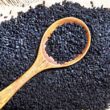Having a well-balanced diet is essential in order to dodge health problems related to certain nutritional deficiencies. Knowing some of the telltale signs of being deficient in vitamins and minerals is important in order to avoid complications.
It can be very challenging to have a normal life if your diet is lacking in potassium. This mineral is so important for a wide variety of things, from proper muscle contraction to a normal blood pressure. Continue reading to know some of the warning indicators that you need to incorporate more potassium-rich foods into your everyday diet.
Muscle Weakness
Does it seem like you are constantly tired and sapped of energy? You may not be getting sufficient amounts of potassium on a daily basis. This mineral is very important for muscle repair and functioning. Deprive your body of potassium and it’s very likely for you to end up with very weak muscles.
Cramps and Muscle Pain
Aside from weakness of the muscles, not getting enough potassium may cause you to encounter a lot of muscle pain and cramping. You are likely to experience these uncomfortable symptoms most especially during and after working out. Eating foods rich in potassium can help fend off these problems.
Numbness and Tingling Sensation
You might want to include more potassium-rich foods in your diet if you are constantly bugged by numbness and tingling sensation in your arms and legs. Especially if these symptoms are accompanied by others on this list, you may not be getting enough potassium which is important for keeping the nerves in top-top condition.
High Blood Pressure
Since potassium helps in relaxing the walls of the blood vessels, the said mineral is very important for your cardiovascular health. Deprive yourself of it and you might end up with high blood pressure. With insufficient amounts of potassium in the diet, your blood vessels may become constricted, leading to an elevated blood pressure.
Heart Palpitations
Another cardiovascular-related symptom you may encounter if you’re deficient in potassium is heart palpitations. It can be very scary to feel your heart skipping a beat, racing or pounding in your chest. A diet that’s low in potassium is only one of the many reasons for heart palpitations so it is very important to be checked by your doctor.
Dizziness or Feeling Faint
Potassium is necessary for the proper contraction of the heart muscles. With a diet that’s lacking in the said mineral, your heart may not be able to pump blood efficiently throughout your body, and that includes your brain. This is the reason why you tend to feel dizzy if you are not getting enough potassium via your diet.
Constipation
Do you regularly have a bout of constipation? There are a handful of probable reasons for that, such as a low-fiber diet, insufficient intake of fluid and lack of exercise. Being deficient in potassium may also be the culprit behind your constipation as it is also essential for the proper functioning of your digestive system.
Water Retention
A diet that’s high in sodium can cause water retention. According to the experts, potassium is something that can counter sodium, thus it helps in flushing out too much water in the body. You may need to include more potassium-rich foods in your everyday diet if it seems like you’re packing a lot of water weight.
The above are some of the telltale signs that you are not getting enough potassium. Fortunately, there are plenty of foods that are rich in the said mineral. Some wonderful examples are potatoes, kidney beans, bananas, avocados, dried fruits (apricots, raisins, figs and peaches), sun-dried tomatoes, fish, milk and dark green leafy vegetables.












